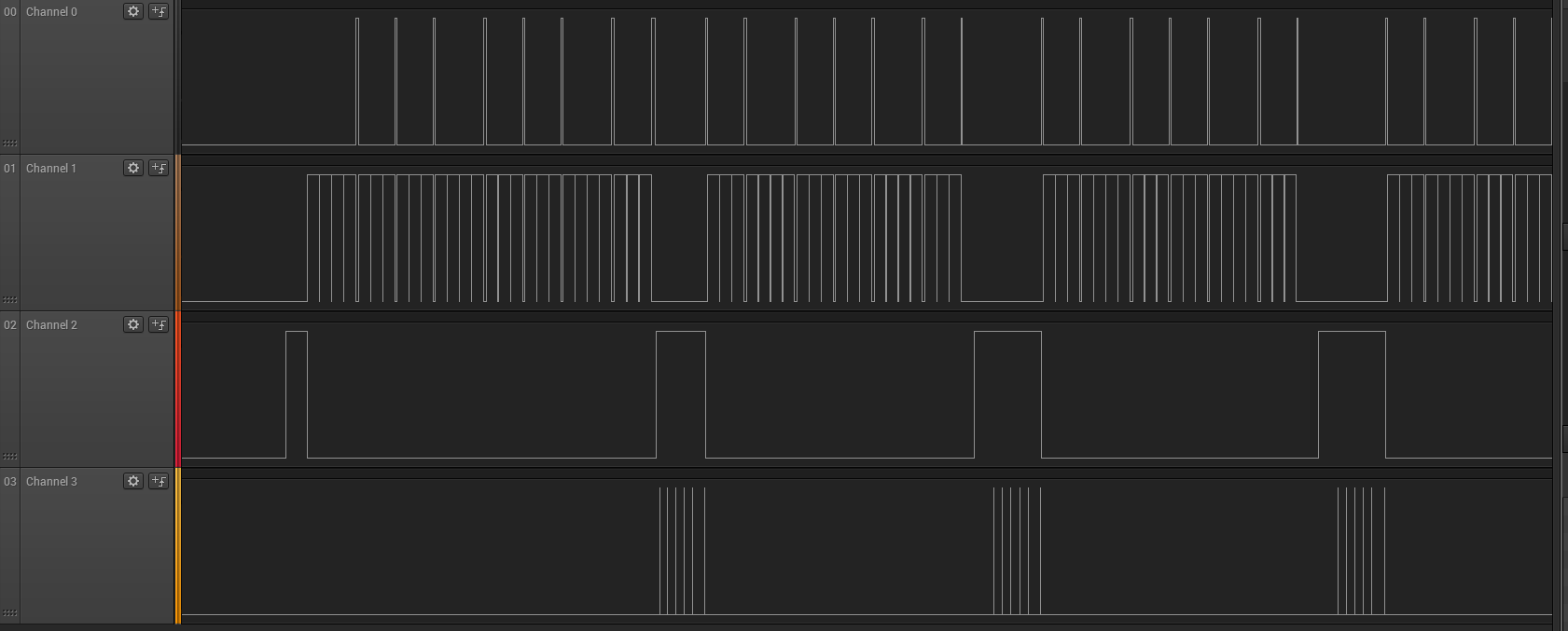Hi!
I have an implementation running with a peripheral sending notifications to a central at 27.5 ms. They are both configured with HIGH BW. Sending of notifications is activated by pressing a button. I now see that when the button is pressed, the peripheral is able to put 7 packets into the buffer (and an 8th one overflowing it) in the first interval, but then it changes to 6 packets (+ a 7th that overflows the buffer) for the following intervals.
I actually want be able to achieve 6 packets per interval, for each interval, so also for the first one. So my question is, how is this possible?
The figure below illustrates once more the beginning of notification sending and thus the transitions from 7 to 6. Channel 2 is the radio. Channel 0 indicates putting a packet in the TX buffer and is thus first 8 times and then always 7 times. Channel 1 is I2C measurements of an accelerometer in between.

Kind regards
Mathias
EDIT 1



